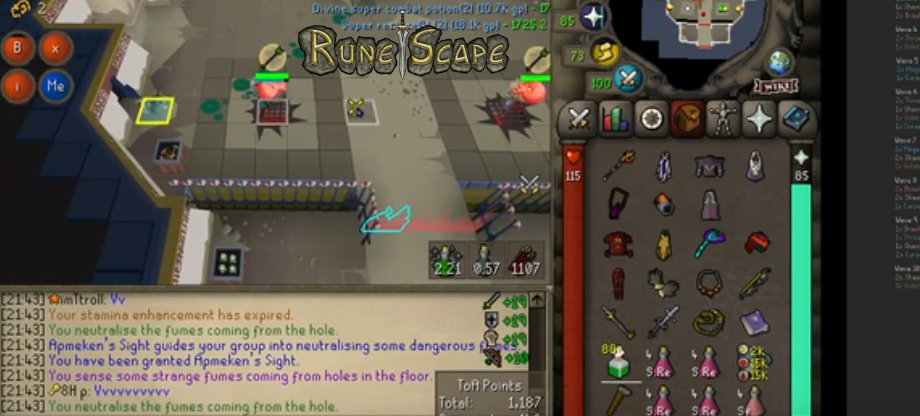Most players depend on chat for announcing their actions and opinions prospective players must examine what type sort of "roleplaying" that they would prefer to engage in. For instance the OSRS gold Forums offer the most well-known and familiar role-playing "mechanics" which players can adhere to, especially when it comes to indicating actions like doing things such as expressing thoughts, declaring them and shouting and whispering. There's an additional Forum Roleplay and Stories section in the Forums that allows for text-based storytelling that isn't part of gaming.
While this is the standard way of expressing yourself in RuneScape roleplaying games, modern technology allows players to engage in roleplaying within the world with more imaginative methods. For example, players might be able to group themselves into groups of roleplaying which don't depend on chat. Instead, they can use voice chat to play in groups like Discord Server or even livestream through platforms like Twitch. These are vital considerations since they will determine the pace of the players' planned stories.
No matter if players intend to play solo or with a group It is crucial to determine the limits of the sessions within their world of open RuneScape play. Although roleplaying is essentially "make-believe" for the majority of players but the kind of fantasy that they'd like to play isn't necessarily compatible with the goals of other players.
For instance, the first thing to consider are the manner of speaking and the actions that are acceptable in the game - including swear words, mature behaviour as well as triggers for situations. It is also possible to establish boundaries for simpler matters for example, stating that the time slot is committed to completing a certain questline, or insisting that the game should be focused on non-combat issues. Be clear and precise about boundaries makes sure that all players participating in the roleplay experience the best time, while not damaging each other's feelings.
A major and essential aspects of roleplaying in any game, specifically when it comes to the extremely wide RuneScape gameplay, is the creation of a character's character. While a character may very all be the gamer's "in-game character," developing a more elaborate character idea will allow players to create more compelling stories during their games.
In creating characters, players can go as simple and emulate the characters of their favorite fictional characters or design a completely new character from scratch. The creation of a personality is simply as easy as assuming an "lifestyle" of an actual job or occupation that is in play, for instance, a farmer or miner. Additionally, players can construct more complicated characters that include things like motives and weaknesses to their characters, that they could accomplish or overcome during playing sessions.
A useful piece of advice players in RuneScape games can apply when playing roleplaying is to establish the goal for a specific session. As an example, participants could prepare for a role-playing session where they have to achieve some kind of objective, like completing the questline, defeating the monster, or completing small tasks that are related to the art of Skills. The objective can also deal with beating the RuneScape boss.
Making preparations for the sessions in advance by setting a goal will allow players to play in a less rambling and coherent way. In contrast to random play sessions that could go "anywhere" and damage the character's narrative by following a predetermined pattern for the session lets players slowly advance towards their desired story.
With RuneScape game play taking place in an open universe It's likely that the game wants to ensure that players discover a variety of activities to accomplish at any given point. This could seem odd for players to make a decision on an ending about something that they haven't completed RuneScape gold. But the process of deciding on a conclusion is among the most crucial aspects of writing a story particularly because knowing how the story begins and what it's expected to finish allows storytellers be able to have an idea of how they can weave their story.

